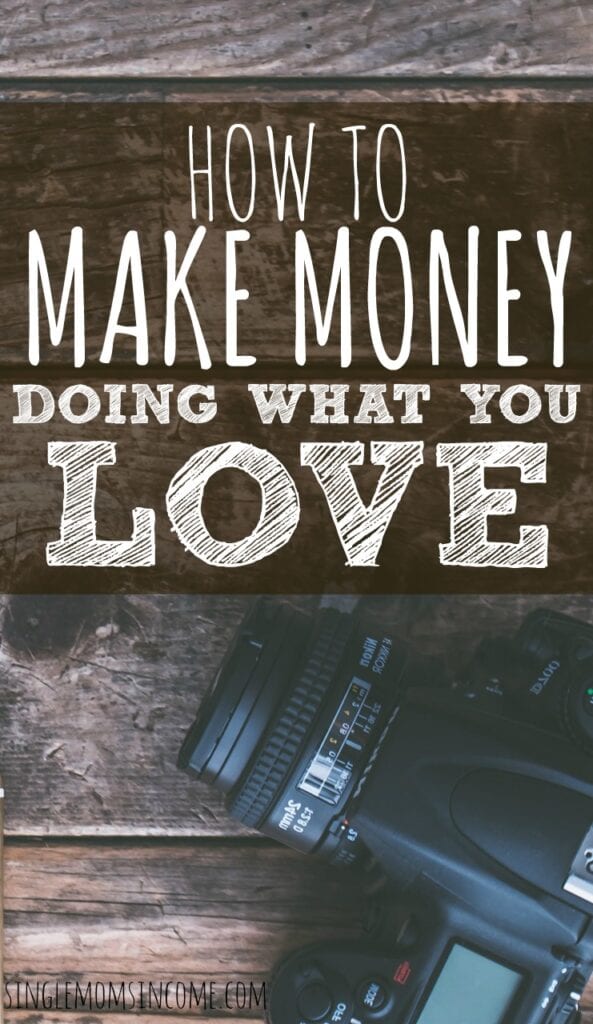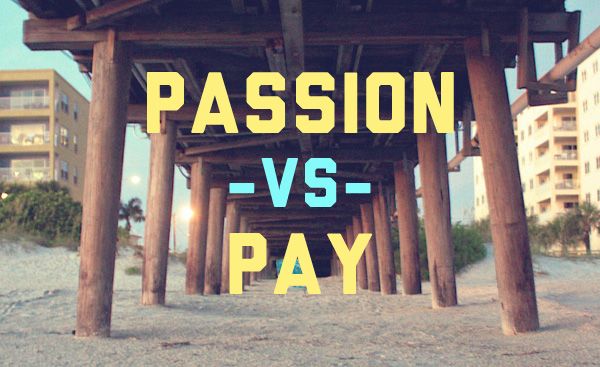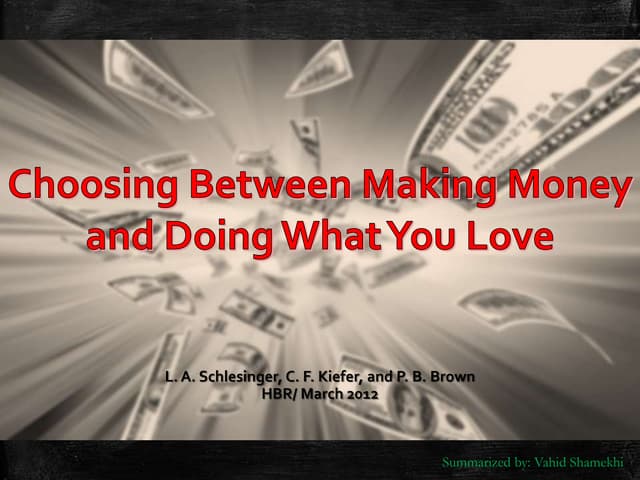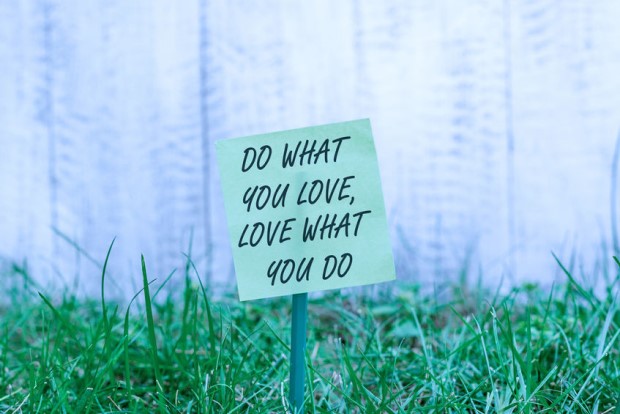Making Money Vs Doing What You Love

The aroma of freshly baked bread wafts through the air, mingling with the gentle strumming of a guitar. Sunlight streams into a small, cozy bakery, illuminating shelves lined with artisanal loaves and a young woman with flour dusting her apron, her face alight with a genuine smile. But that smile, like the delicate crust of a perfectly baked sourdough, hides layers of complexity, a testament to the choices we all face: chasing a paycheck or pursuing our passion.
At the heart of this narrative lies the universal dilemma: making money versus doing what you love. This isn't just a question for artists or bakers; it's a challenge that resonates with anyone contemplating their career path, a tightrope walk between financial security and personal fulfillment, where the landing often feels uncertain.
Consider the story of Eliza Hawthorne, the baker whose sanctuary of flour and yeast wasn't always her reality. For years, Eliza climbed the corporate ladder, a high-powered marketing executive fueled by ambition and a hefty salary. But the thrill of closing deals and exceeding quotas slowly faded, replaced by a gnawing sense of dissatisfaction.
“I was making good money, enough to buy the things I thought I wanted,” Eliza reflects, kneading dough with practiced ease. “But at the end of the day, I felt empty. The numbers on a spreadsheet just weren’t feeding my soul.” Her story mirrors data from a 2023 Gallup poll showing that while salary remains a key factor in job satisfaction, a sense of purpose and connection to one's work are increasingly important, especially for younger generations.
The breaking point came during a particularly stressful quarter, culminating in a health scare that forced Eliza to re-evaluate her priorities. She enrolled in a baking class, initially as a form of therapy, but soon found herself captivated by the alchemy of ingredients and the tangible satisfaction of creating something beautiful and nourishing. It was a stark contrast to the abstract metrics of her corporate life.
The transition wasn't easy. Leaving a stable, well-paying job to start a small business required courage and sacrifice. Eliza downsized her living expenses, took out a small business loan, and spent months perfecting her recipes. There were moments of doubt, nights filled with worry about making ends meet. According to the Small Business Administration (SBA), approximately 20% of new businesses fail within the first year, a statistic that weighed heavily on Eliza’s mind.
“There were times I questioned everything,” she admits, carefully placing a tray of croissants into the oven. “But then someone would tell me how much they loved my bread, or how it reminded them of their grandmother, and that made all the struggles worthwhile.” This connection to her community, the ability to bring joy through her craft, became her new measure of success.
Eliza's story is not unique. Many individuals are seeking more meaningful work, even if it means sacrificing some financial comfort. This trend is reflected in the rise of the “passion economy,” where people are leveraging their skills and interests to create independent businesses and pursue unconventional career paths. The online platform Etsy, for example, has seen a significant increase in the number of creators selling handmade goods and vintage items, showcasing the growing desire for authentic and purposeful work.
However, it’s important to acknowledge that the choice between passion and paycheck isn't always a simple one. Financial realities often dictate career decisions, particularly for individuals with families to support or significant debt. For some, finding a balance between a stable job and pursuing hobbies or side projects can be a more realistic and sustainable approach.
Moreover, it's a privilege to even contemplate such a choice. Many individuals around the world are simply focused on survival, working long hours in demanding jobs to provide for their basic needs. The ability to prioritize passion over profit is often a luxury afforded to those with a certain level of economic security.
Back in Eliza's bakery, the bell above the door jingles as a customer enters, drawn in by the irresistible aroma. She greets them with a warm smile, sharing stories about the ingredients and the inspiration behind each loaf. It’s clear that she has found something far more valuable than a large salary: a sense of purpose, a connection to her community, and the joy of creating something beautiful with her own hands.
The pursuit of happiness isn’t always about following your passion blindly. It’s about finding meaning and purpose in whatever you do, whether it’s climbing the corporate ladder or baking bread in a small-town bakery. Perhaps the real challenge lies not in choosing one over the other, but in finding a way to integrate our passions into our lives, no matter our chosen career path.


















